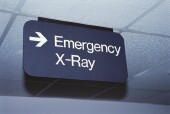
TUESDAY, Oct. 26 (HealthDay News) –Middle-aged adults may face as high a risk for developing cancer as a result of radiation exposure as younger adults and children, new research suggests.
Although children are thought to be more sensitive to the long-term impact of radiation and related cancer risks, the current observation runs counter to some previous research suggesting that as people age, their vulnerability to radiation-induced cancer diminishes.
“Overall, the weight of the epidemiological evidence suggests that for adult exposures, radiation risks do not generally decrease with increasing age at exposure,” a team of authors from Columbia University in New York City said in a news release.
The findings are published in the Oct. 25 online issue of the Journal of the National Cancer Institute.
The study’s conclusion is based on a review of data concerning Japanese survivors of the atomic bomb, whose radiation cancers were attributable to one of two causes: genetic mutations caused by radiation that turned normal stem cells into precancerous cells, or an increase in the number of already existing precancerous cells.
Using a newly designed risk analysis model, the authors looked at the age of the survivors at the time the bomb was dropped and then tracked the ensuing incidence of cancer.
In turn, they used the same statistical framework to predict cancer risk by age of radiation exposure among people aged 30 to 60 in the U.S. population.
The finding: For some types of tumors, cancer risk does appear to increase following radiation exposure among individuals in this age bracket — a discovery they said could have practical implications, since most X-ray procedures and jobs requiring radiation exposure involve middle-aged people.
In an accompanying editorial, John D. Boice of the International Epidemiology Institute in Rockville, Md., and Vanderbilt University in Nashville, noted that prior studies contradict the current findings and that generalizing the Japanese data to the U.S. population may be problematic.
But he concluded that the current effort “raises provocative hypotheses and conclusions that — although preliminary — draw attention to the continued importance of low-dose radiation exposures in our society.”
More information
For more on radiation exposure risk, visit the U.S National Institutes of Health.

